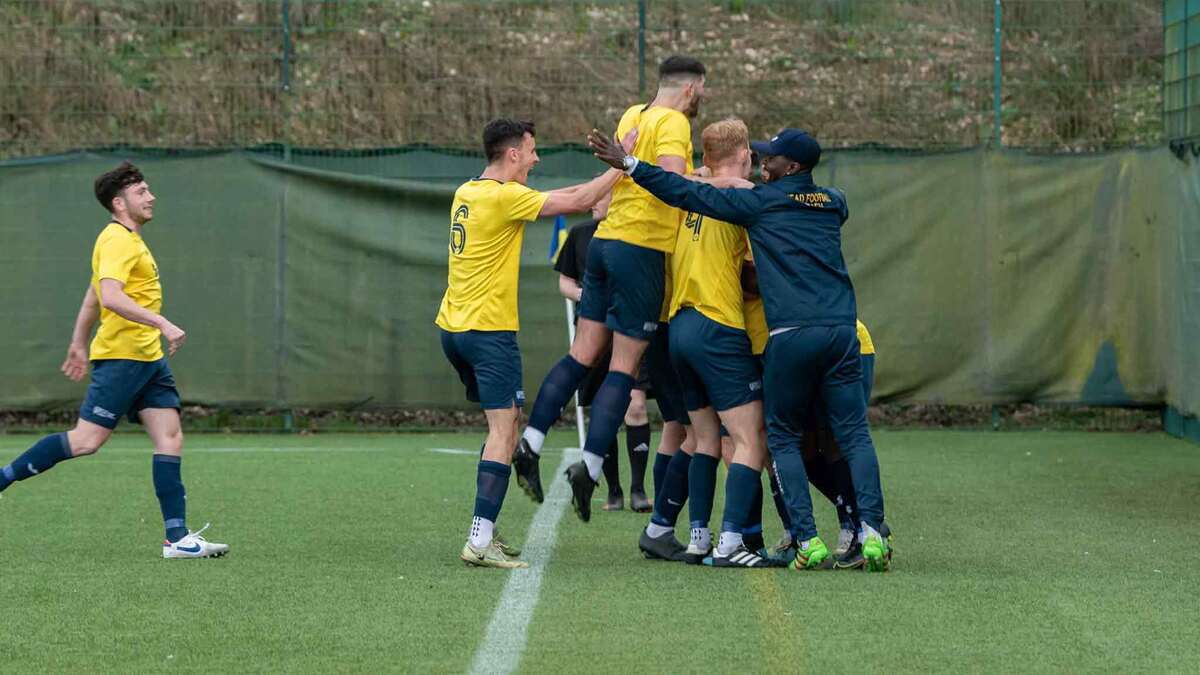Published:

Heriot-Watt University Football Club has reached the highest level of British university football for the first time since the club was founded 78 years ago in 1945.
After beating Leeds Beckett University 3-1 in a play-off, the club will be promoted next season to the Premier division of the British Universities & Colleges Sport (BUCS) Football League.
BUCS is the UK's national governing body for university sport and its Football League has more than 450 men's and women's teams competing in 100 leagues.
I feel a mixture of euphoria, happiness and delight for the team, the club and the University.
The historic promotion means Heriot-Watt University Football Club will represent the university in the British university football league for the first time and play against other major university teams.
Dan Potter, Sports Union President at Heriot-Watt University, said: “This is a fantastic achievement and it means Heriot-Watt University Football Club will now be playing against the best and biggest university clubs in the UK – like the universities of Nottingham, Newcastle and Durham.
“We want to be able to achieve and compete at the highest level and it shows the success of our students' dedication and commitment to sport.”
Bejay Koya, Head Coach of Heriot-Watt University Football Club, said: “I feel a mixture of euphoria, happiness and delight for the team, the club and the University. It's an important achievement because it elevates our status in university sports. It's also very positive for our Sports Scholarship Programme, because it should help us attract a higher level of athletes to the University, and a higher level of sports performance as a result.”
This year is the first year Heriot-Watt University Football Club has had Sport Scholarship students in its first team. These are students and high performing athletes who get a scholarship based on their sporting ability. It means they are treated like professional athletes and get a lot of extra support in terms of nutrition, strength and conditioning, recovery and using the facilities and sports scientist team at Oriam. This is Scotland's national performance centre for sport, which is based at Heriot-Watt's Riccarton campus in Edinburgh.
The Leeds win for the club on 26 April followed a 2-1 away win against favourites Birmingham University on 5 April in a three team play-off.
Craig Smith, Captain of Heriot-Watt University Football Club, said he was “absolutely over the moon” and added: “It's something we've been working towards for three, four, five years and last night was finally the culmination. To be in the top division of university football is a great feeling.”
Club Vice Captain Ethan Kerr added: “We couldn't have done it without a single one of the team who were there, whether they were playing, or on the bench, or watching – it needed every single one of us to achieve this.”
Ethan said jumping to the British league was a “massive leap,” but there was “incredible ability” in some of the young players coming through. This would help Heriot-Watt University Football Club continue to perform as some of the older players graduated.
Ethan is a fourth year quantity surveying student at Heriot-Watt and Craig is studying investment management.
Dan Potter said promotion for Heriot-Watt University Football Club shows it is possible for students to play sport and achieve academically. “You can play sport and study as well and still achieve high performance,” he said.
Heriot-Watt University Football Club has six men's teams, one women's team and more than 150 members. The first team has 22 players in its squad. Th club is the largest club affiliated to the University's Sports Union and participates in both student competition and local football. The club was founded around 1945 as Heriot-Watt College Football Club and first played in the East of Scotland Football League in 1971-2.
University sport officially began in the UK when universities created the forerunner to BUCS in 1919.